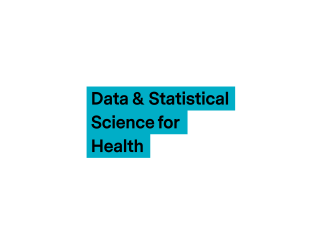Centres, groups and projects
Centres, groups and projects
With research grant income of more than £180 million per year, LSHTM is home to a large number of exciting and impactful research activities. We have a global presence with staff conducting research in more than 100 countries and we are deeply committed to working in collaboration with external partners. We are also home to four designated World Health Organization Collaborating Centres.
Featured research
Explore all Centres, groups and projects
P
PARES is a NIHR funded consortium of partners from Europe and Africa, dedicated to researching and building partnerships for resilience. We are identifying best-practices and developing indicators for engaging communities in crisis-response.
Advancing healthcare knowledge through patient and public involvement.
The Pathfinder Initiative, funded by the Wellcome Trust with support from the Oak Foundation, supports rapid progress towards a healthy, zero-carbon society.
Patients’ views are essential to achieving high-quality healthcare. Our PROMs research is helping to improve patient care by evaluating the performance of health care providers and guiding NHS reforms.
The PAVE team are an anthropological led team including social scientists, political theorists, epidemiologists, and modellers. Working in an innovative cross-disciplinary approach we address two public health problems: violence and epidemics and the intersections between them.
PENDA is consortium lead by the International Centre for Evidence in Disability, it is focused on creating evidence to achieve long-term improved wellbeing and inclusion of people with disabilities in Low and Middle Income Country's (LMICs), through building knowledge, people and tools.
Investigating the effectiveness of different treatments for Type 2 Diabetes Mellitus.
An independent evaluation of England's Pharmacy First service. Launched in 2024, we will study implementation and impact of the new scheme which enables pharmacies to supply prescription-only medicines for seven common conditions.
PIC4C Scale-up is a collaborative implementation research project to inform and support scale up of the Primary Health Integrated Care project for Chronic Conditions in Kenya and beyond.
Pilot RCT of a complex violence prevention intervention.
This project is funded by a Wellcome Trust Medical Humanities New Investigator Award, awarded to Dr Alex Mold in 2013 and is based in the Centre for History in Public Health at the LSHTM.
The Policy Innovation and Evaluation Research Unit (PIRU) brings together leading health and social care expertise to improve evidence-based policy-making and its implementation across the National Health Service, social care and public health.
Researching health at the interface of economics and politics
A major study in South Africa and Zambia to test a new approach to the prevention and control of HIV in Africa.
PHI-Lab uses insights from epidemiology, economics, sociology and geography to understand and change the social, economic and environmental system drivers of population health.
The Population Studies Group (PSG) is engaged in the measurement and explanation of population trends and in the evaluation of attempts to modify them.
How people respond to vaccines, and how well they work, varies between populations. POPVAC’s goal is to understand these differences in order to identify strategies of improving vaccine effectiveness.
Our trial evaluates Positive Choices, a whole-school social-marketing intervention to promote sexual health across 50 secondary schools in England.
Power and Protection is home to original films, archival material, and resources about the history of the Court of Protection in England and Wales, and the evaluation of ‘mental capacity’.
The Praziquantel in Preschoolers trial (PIP) aims to find the right treatment dose of praziquantel for preschool children living with intestinal schistosomiasis in Uganda.
Training teachers on emotional self-regulation and positive discipline to prevent and reduce violence against children in schools in Nyarugusu refugee camp.
A randomised double-blind controlled phase III study to compare the efficacy and safety of intravenous ferric carboxymaltose with placebo in patients with anaemia undergoing major open abdominal surgery.
Brings together researchers, providers and policymakers working on PHC in all settings; to identify opportunities to build collaborations, support shared learning and strengthen knowledge in this area.
Studying private healthcare provision – how it works, how to improve it and where it fits in universal health care
Developing an evidence base and platform for action around how violence in childhood and adolescence affects child labour, participation in skills programmes and employment outcomes in Uganda.
The Policy Research Unit in Commissioning and the Healthcare System (PRUComm) provides evidence to the Department of Health to inform the development of policy in the National Health Service. We focus on maximising outcomes for patients.
Understanding, developing, and advocating for the arts and humanities within public health research, training, and practice.
The Public Health Research Consortium (PHRC) brings together senior researchers from 11 UK institutions in a new integrated programme of research, with the aim of strengthening the evidence base for interventions to improve health, with a strong emphasis on tackling socioeconomic inequalities in health.


